Don’t let chronic depression rob you of one more day. Sierra Tucson can provide you with the personalized treatment you need so that you can live the healthier life you deserve. Learn more about our comprehensive services in Tucson, Arizona.
Understanding Chronic Depression
Learn about chronic depression
Chronic depression, also known as Dysthymia depression, is one of the three most common types of depression. (The other two are major depression and bipolar disorder, which was once referred to as “manic depression.”)
As with the other forms of depression, Dysthymia or Chronic depression is associated with feelings of sadness, hopelessness, and lethargy. However, unlike the other types of depression, dysthymia presents itself with less severe symptoms over an extended period of time, rather than short and extremely intense experiences.
Signs and Symptoms
Signs and symptoms of chronic depression
The following symptoms are common among individuals who are suffering from dysthymia:
- Sadness?
- Feelings of hopelessness or despair
- Lethargy, fatigue, or persistent feelings of low energy
- Loss of interest in people, activities, and events that were once the source of pleasure
- Abnormal appetite (either constant desire to overeat or a lack of appetite)
- Abnormal sleep patterns (either excessive or minimal amounts of sleep)
- Feelings of low self-esteem and/or low self-worth
It is essential to recognize that the core element in a diagnosis of dysthymia is the presence of symptoms such as the ones listed above for an extended period of time. A diagnosis of dysthymia usually requires that these symptoms have been present on most or all days for one to two years or more.
Causes and Risk Factors
Causes and risk factors for chronic depression
As with all cases of depression, no absolute cause-effect relationship has been established between any one risk factor and the development of dysthymia. Experts estimate that dysthymia affects between one and five percent of the adult population in the United States, with women more likely than men to be suffering from the condition.
Family History
Family history and chronic depression
Individuals whose families have a history of depression may be at increased risk for developing dysthymia. Other factors that can raise the likelihood of developing dysthymia include suffering from another long-term medical condition, abusing alcohol or another drug, and suffering from anxiety or panic disorders.
Mental health experts have also noted an increase in dysthymia among elderly individuals, who may have developed this form of chronic depression as a result of a diminished ability to care for themselves, and the resultant loss of independence.
Types of Treatment
Types of chronic depression treatment offered at Sierra Tucson
Treatment for Chronic Depression often involves medication and therapy. Selective Serotonin Reuptake Inhibitors (SSRIs) such as Prozac, Paxil, and Zoloft have proved to be quite effective in helping dysthymic individuals overcome their disorder, though the type and dosage of the ideal drug for each dysthymic resident must be determined on a case-by-case basis.
Psychotherapy can also be an effective component of a treatment plan for dysthymia. Some residents will respond best to medication alone, some to psychotherapy alone, and others to a combination thereof. As with determining the best type and amount of medications, establishing the correct balance between medication and psychotherapy depends on a number of factors unique to the resident.
Sierra Tucson, the best rehab center for chronic depression treatment, offers premier care for all our patients. If you or a loved one is suffering from chronic depression, consider treatment at our center.













